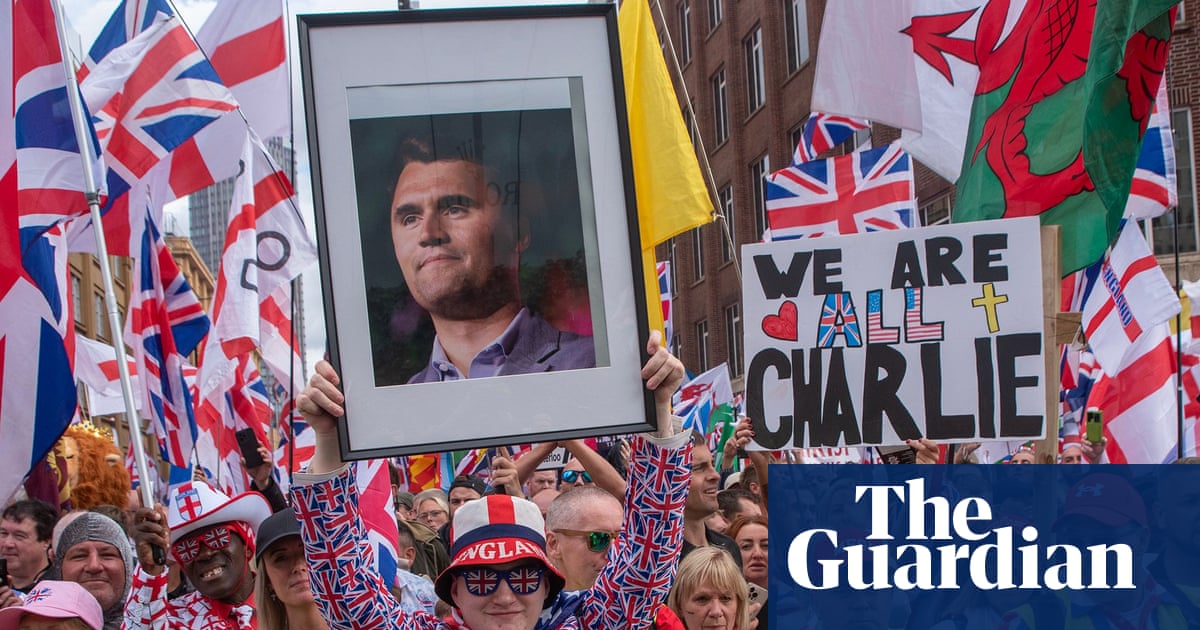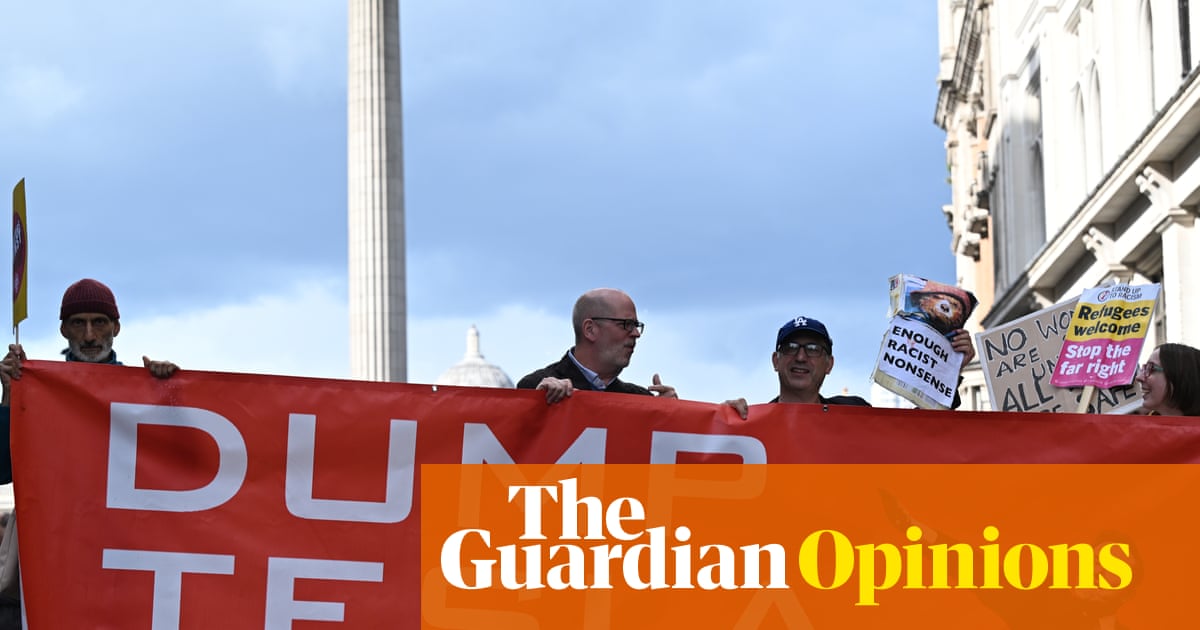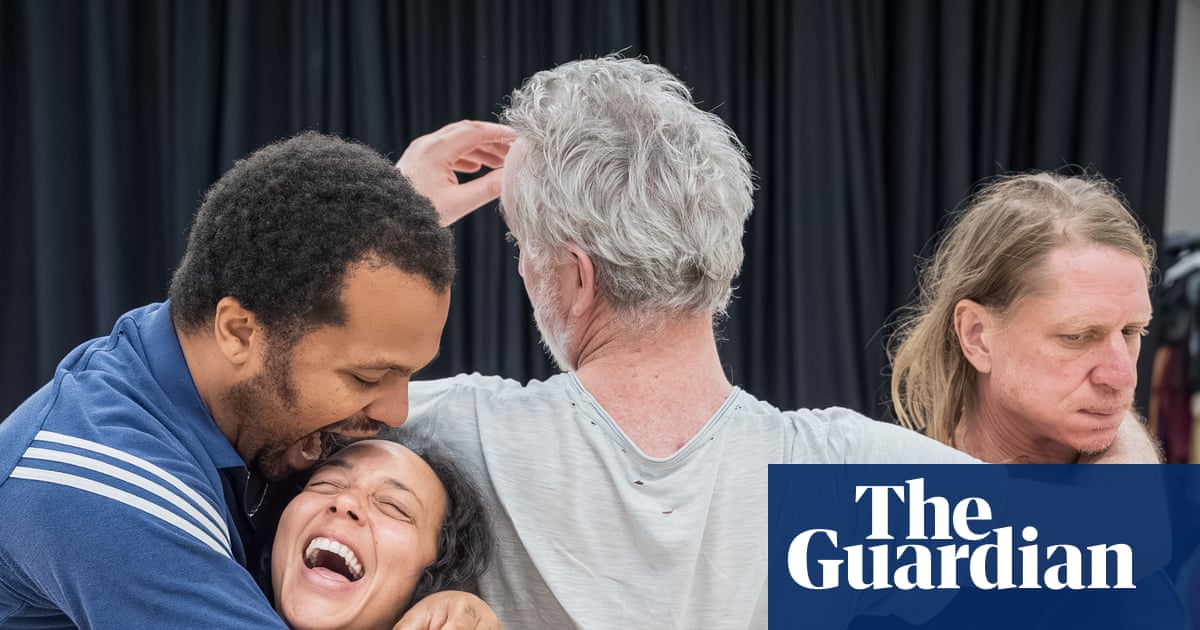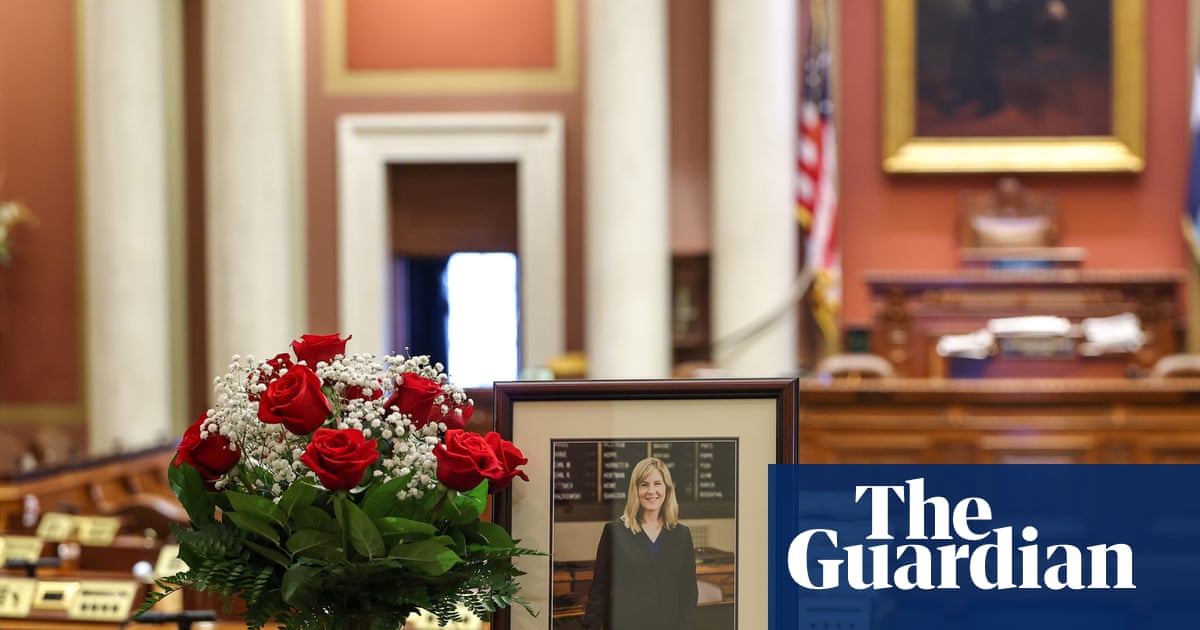This piece must be carefully written to avoid my being imprisoned for up to 14 years. That’s a curious sentence to say as a newspaper columnist in Britain in 2025. But since the government voted to proscribe the direct action protest group Palestine Action under the Terrorism Act, any statement seen as expressing support could lead to arrest and prosecution.
You may justifiably respond that Guardian journalists are not above the law. For example, if I penned a column in support of al-Qaida, you might be sympathetic to incarceration: it did, after all, kill nearly 3,000 people on 9/11, as well as perpetrate multiple terrorist atrocities such as the 2004 Madrid train bombings, and the 7 July London bombings two decades ago. Similarly, you may conclude that a polemic in favour of Islamic State should be met with a hefty prison sentence.
Personally, I’m not in favour of carceral solutions for political problems: I didn’t support having the neo-Nazi football hooligan who attacked me six years ago being locked up (his sentence was two years and eight months), nor the racists who posted inflammatory hatred during last August’s attempted national pogrom. But that is a legitimate political disagreement, one that places me in a small minority.
Clearly, I would never write a defence of murderous hijackers, bombers, beheaders and indeed génocidaires. But this column concerns a movement which is, legally speaking, now equivalent to al-Qaida and IS, and that is Palestine Action. Rather than decapitating people, or filling mass graves with innocent victims, they were proscribed after throwing red paint at military planes in what they say is a protest against Britain’s complicity in Israel’s genocide of the Palestinian people.
Last week, our home secretary joined other female Labour MPs in a photoshoot celebrating the suffragettes, who planted bombs, burned down private homes and smashed up art galleries. They then voted to classify a movement which positions itself as opposing violence against people as a terrorist organisation.
And this weekend, an 83-year-old retired priest, Sue Parfitt, was arrested after holding a placard that read: “I oppose genocide. I support Palestine Action.” Twenty-eight others were also arrested on those grounds. Questioned about her detention, the Metropolitan police commissioner, Mark Rowley, responded: “It is not about protest. This is about an organisation committing serious criminality.”
Note how even Britain’s top police officer could not bring himself to claim Palestine Action was “an organisation committing terrorism”, which is what the law proclaims. I suspect he knows that, in doing so, he would have exposed the grotesque absurdity of this legislation. Yes, those who have helped drown Gaza in blood have turned the world upside down – treating the opponents of this mass extermination as dangerous, hateful extremists – but words have still not been entirely emptied of their meaning.
Do not expect that to last. An injury to democracy, once inflicted, cannot be contained. It becomes immediately infected, and the sickness spreads.
One of the hallmarks of an authoritarian society is that the state sanctifies what everybody knows is not true, even if they are legally compelled to act otherwise. Britain remains far from totalitarianism, but a society that arrests an 83-year-old retired vicar for holding a placard supporting non-violent direct action, and opposed to genocide, is firmly on an authoritarian pathway.
This has been a long time in the making. When New Labour introduced anti-terrorism laws, opponents warned the legislation would be abused to persecute peaceful protesters. Indeed, then 83-year-old Holocaust survivor Walter Wolfgang was held under the Prevention of Terrorism Act after he heckled the then foreign secretary, Jack Straw, over the Iraq war at the 2005 Labour party conference.
While many commentators portrayed Boris Johnson as a hands-off libertarian, his government introduced legislation that allows police to ban virtually any protest, with the Policing Act permitting action against demonstrations deemed too noisy. You may well ask what sort of protest is not noisy.
Alas, it should always have been obvious that authoritarianism pulses through the veins of the Labour faction underpinning Keir Starmer’s leadership. As former Labour MP – and indeed adviser to Tony Blair – Jon Cruddas once put it, this is “the most rightwing, illiberal faction in the party”. As anyone who has ever encountered these factionalists in person can testify, they are defined by a raw hatred of the left. Lobby groups committed to Israel, or with links to the defence industry, pushed for this sort of legislation, and the Labour top brass lapped it up.
Once a movement committed to non-violence has been designated as terrorists, then a Rubicon has been crossed. “Terrorism” has been emptied of any real meaning, and can be applied far more widely. Indeed, earlier this year, more than 70 peaceful protesters were arrested at a demonstration organised by the Palestine Solidarity Campaign (PSC). None of this was direct action: they were deemed to have breached arbitrary restrictions by marching down Whitehall clutching flowers commemorating Palestine’s dead. The PSC leader, Ben Jamal, is among those being put on trial.
Yes, the authoritarian descent predates the slaughter of Gaza. But we have certainly learned that the consequences of a state facilitating genocide will have profound consequences on society at home. Millions of people are aware that their government has facilitated a grave crime, and to protect themselves from scrutiny and accountability, the powers that be must silence those challenging the crime. Democracy becomes ever more imperilled.
Remember: it is an illegal offence to show support for Palestine Action, which is deemed legally equivalent to al-Qaida and IS. If that law is broken, prison awaits. The proscribed organisation promotes civil disobedience and non-violent direct action in protest at genocide. This column has been checked over with that in mind. Ask yourself if this is normal in a self-described democracy. Then ask yourself searching questions about where this is all headed.
-
Owen Jones is a Guardian columnist
-
Do you have an opinion on the issues raised in this article? If you would like to submit a response of up to 300 words by email to be considered for publication in our letters section, please click here.

.png) 2 months ago
23
2 months ago
23

















































